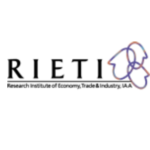
“Despite Japan’s aging population and mounting public debt, the country offers a host of investment opportunities, according to Katie Koch, co-head of Goldman Sachs Asset Management’s (GSAM) Fundamental Equity business. Koch recently returned from GSAM’s annual Investor Tour, held this year in Tokyo and Kyoto, where the team hosted 20 CEOs, CIOs and heads of equity from large global institutions along with Japanese policy makers, government officials and C-suite executives….”







